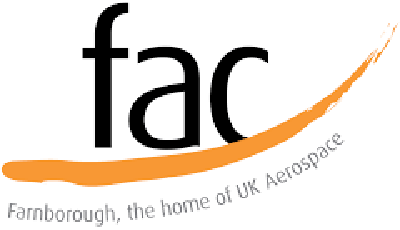Autumn Budget: key reforms to employee ownership trusts
Stephen Hadlow, partner in the corporate team at purpose-led independent law firm Brabners, explains how the recent reforms to employee ownership will continue to promote enlightened succession planning for aerospace businesses looking to preserve their culture and independence.
As the dust settles following the Autumn Budget, businesses in the aerospace sector will have been pleased to see the Chancellor’s pledge to invest almost £1billion into the sector over the next five years. Indeed, with the funding prioritising innovative research and development, the North West – which boasts some of the sector’s most pioneering companies – is likely to benefit more than most.
Though this funding, and the changes to National Insurance are pulling much of the focus post-event, there were a number of other announcements at the despatch box that management teams in the sector should be alive to. Chief among them – particularly for those business leaders in the process of succession planning – are the long-awaited reforms around employee ownership trusts (EOTs).
Taking ownership
In a nutshell, the benefits of an EOT arise when a business owner sells more than 50 per cent of their shareholding to a trust which has the company’s employees as its beneficiaries.
Generally, the owners are paid back for their stake over time from company profits, though typically a significant initial upfront payment is also made, funded by existing cash on the company balance sheet or a bank loan.
The main draw of employee ownership is that the whole succession process remains under the business’ control and is therefore easier to manage than, for example, a trade sale. This presents a particularly attractive option for smaller companies that rely on patented technology or intellectual property, by ensuring that all employees benefit from the business’ future growth and profitability. It also means existing management teams are able to step into more senior roles with the security that the firm’s independence has been prioritised.
These upsides have inspired a significant rise in the number of employee-owned businesses in the UK in the past few years, with around 1,400 companies adopting the model by the end of 2023.
And with this number set to grow, the Government has prioritised taking steps to make the model fairer and more robust.
Rules of engagement
The Autumn Budget marked the end of the Government’s long-running EOT consultation, which was launched in 2023 to focus the rules more effectively on the policy objectives of rewarding employees and creating more meaningful models of employee ownership.
The amendments include a handful of changes to guarantee the independence of employee-owned firms post-sale. This includes the introduction of a new ‘trustee independence requirement,’ which means that business owners, or people related to them, are prevented from retaining control of their company after it is sold to an EOT.
Additionally, new rules around employee profit bonuses mean that it is possible to exclude directors from the ‘participation requirement’ – which previously necessitated that all employees be eligible for the bonus payments. This means that EOTs can be more flexible in rewarding employees, aiding fair profit sharing and providing meaningful financial incentives for employees of employee-owned businesses.
These changes will make employee-owned businesses even more effective in boosting employee satisfaction and encouraging staff retention – making them a useful tool for aerospace businesses looking to attract and retain talent in the face of the growing skills gap impacting the sector’s growth.
And, in updates to market value, the trustees of an EOT are obliged to take all the necessary steps to ensure that share purchase price reflects market value. This comes alongside tighter controls on interest on vendor loans to help ensure that owners are receiving no more than the true fair value of the business when selling to an EOT.
Tax regulation is also a key focus of the reforms. The regime now requires that trustees are UK residents, so that in the instance of a “disqualifying event” – which results in a business losing its EOT status – trustees must pay the UK rate of Capital Gains Tax (CGT). This change has been welcomed by many EOT advisers, including ourselves, given its aims of better promoting longer-term models of employee-ownership.
In the same vein, an extended CGT clawback period means that a disqualifying event occurring up to the end of the fourth tax year post-transaction will now trigger a loss of vendors’ CGT relief.
Finally, sellers must now provide detailed reporting on sale proceeds and employee numbers in order to claim CGT relief, placing a greater focus on EOT compliance.
Picking the right route
We welcome these recent reforms, which offer greater clarity and fairness and help foster good models of employee ownership. We’re anticipating that many more North West businesses will see employee-ownership as an attractive exit or succession planning strategy.
And with the aerospace sector set to benefit from such a significant injection of funding, employee-ownership can provide a sustainable platform for management teams looking to create long-term resilient growth.
Experian recognised Brabners as the most active North West-based EOT adviser last year. We’re therefore well-versed in helping a huge range of businesses complete these sales, all united by their desire to preserve their independence and culture.
To find out more about how Brabners can support you in building a succession strategy that aligns with your business’ needs, please contact Stephen Hadlow: stephen.hadlow@brabners.com






